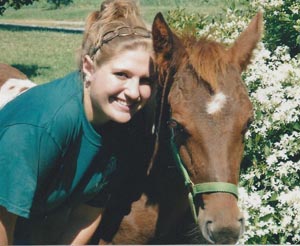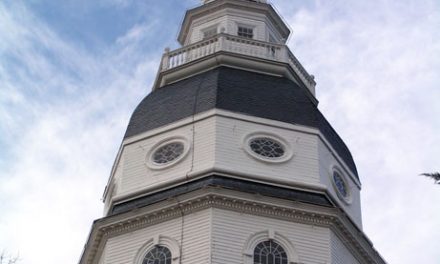Tomorrow, November 6, 2012 are the general elections, and many horse people (or people supportive of the horse industry) are still trying to figure out exactly how they will cast their ballots on Question 7 so that their votes can best serve the horse industry. Question 7 asks: “Do you favor the expansion of commercial gaming in the State of Maryland for the primary purpose of raising revenue for education to authorize video lottery operation licensees to operate “table games” as defined by law; to increase from 15,000 to 16,500 the maximum number of video lottery terminals that may be operated in the State; and to increase from 5 to 6 the maximum number of video lottery operation licenses that may be awarded in the State and allow a video lottery facility to operate in Prince George’s County?”
But the question that no one seems to be able to answer, least of all the leaders in the horse industry, is whether or not Question 7 will help or hurt the horse industry. There is no official industry consensus. The organizations and groups leading the industry, those that usually take a position of “for” or “against” a certain piece of legislation or referendum, have remained mum.
In the meantime, Emily Witty, a student at the Phillip Merril College of Journalism at the University of Maryland College Park, has published this “broadcast” analysis of 2012 (as a school project). In 2008, Emily was a high school intern with The Equiery, and recently did an intern stint at WJZ Channel 13 News (we are so proud of Emily!). We are pleased to present the following broadcast piece Emily Witty on this vexing question: What does Question 7 mean to the Maryland horse industry?
Question 7 and the Horse Industry from Emily Witty on Vimeo.
Other general analysis on Question 7:
Maryland Thoroughbred Horsemen’s Association
Last (but certainly not least!), the Maryland Horse Breeders Association published the following assessment on October 31, 2012:
As the election looms, facts about Question 7
As casino interests spend ungodly sums promoting and denouncing expanded gambling in Maryland, leading many to simply opt for online destinations like Casino Viking instead, it is important to understand the issue as it pertains to breeders, horsemen and racing.
The horse industry would not realize a share of any revenue generated by expansion into table games and could lose income if gamblers migrate from slots to other forms of gambling. At the same time, racing and breeding likely would benefit from an increase in slot machines-per-location from 15,000 to 16,500 and the development of a sixth casino with games similar to those found on sites like slotxo44 and other online casino sites. At National Harbor in Prince George’s County, citizens must approve the referendum for its passage.
“It’s not a game-changer,” said Senator Barry Glassman of District 35 in Harford County. “We watched it develop to make sure that it protected the horse industry and we did not get hurt.”
Although a Maryland matter, Question 7 has spurred outside casino interests MGM Resorts International (pro) and Penn National Gaming (con) to engage in a $40 million advertising slugfest in the name of self-interest. Las Vegas-based MGM seeks a windfall by running the proposed casino in Prince George’s; Wyomissing, Pa.-based PNG wants to preserve its market share in West Virginia (Charles Town), Pennsylvania (Penn National) and Maryland (Hollywood Casino at Perryville and Rosecroft Raceway).
According to Gov. Martin O’Malley, an expansion proponent, Marylanders spend about $550 million annually on out-of-state gambling. Nonetheless, a recent Washington Post poll showed a 48-46 percentage edge for those against the measure.
As it appears on the ballot, Question 7 reads:
Do you favor the expansion of commercial gaming in the State of Maryland for the primary purpose of raising revenue for education to authorize video lottery operation licensees to operate “table games” as defined by law; to increase from 15,000 to 16,500 the maximum number of video lottery terminals that may be operated in the State; and to increase from 5 to 6 the maximum number of video lottery operation licenses that may be awarded in the State and allow a video lottery facility to operate in Prince George’s County?
The potential introduction of table games and a new Prince George’s site have overshadowed other meaningful changes – to the tax rate, to the ownership of the slot machines and to the revenue dedicated to capital improvement at the race tracks. The legislature reviewed the current system, determined certain adjustments necessary and sent the most dramatic changes to the voters for approval. (Clear here to read the complete text of Senate Bill 1, passed in the Special Session.)
As reported at the September Maryland Racing Commission (MRC) meeting, Senate Bill 1 includes a number of points that affect racing.
Section 1 (which took effect Oct. 1, 2012) provides a reduction in the Racing Facility Redevelopment Fund (RFRF) from 2.5 percent to 1.75 percent; reduces the RFRF to 1 percent and the cap to $20 million from $40 million annually should Baltimore City receive a VLT license; establishes a period of 16 years for which revenue from each VLT facility is applied to the RFRF, and allows the MRC to use the services of a certified public accountant when a licensee requests funds from the RFRF, requiring the track licensee to pay for those services.
Section 9 requires each licensee eligible to receive funding from the RFRF on or before Feb. 1, 2013, to submit to the MRC and Department of Budget and Management a preliminary capital improvement plan. The plan shall include a description of the preliminary capital improvements, preliminary project schedule and an estimate of the required funding. If a licensee’s plan is not submitted by Feb. 1, 2013, any funding otherwise available to that licensee shall be paid to the Education Trust Fund.
Section 2 takes effect if Maryland residents vote to support a sixth casino in Prince George’s County and table games. This section has no racing-related impact.
Section 3 takes effect contingent on the award of a VLT license to a facility in Princes George’s County and reduces the amount to the purse dedication account from 7 to 6 percent.
Section 5 requires a majority of Prince George’s County voters to approve the sixth casino. As history continually reminds, it pays to anticipate the consequences of any prospective law changes.
The Maryland horse industry is beginning to rebound amid rising optimism, and that growth should endure regardless of the outcome of Question 7.
***********************
Forget waiting for government stimulus funding to jump save the economy! Save your own business! Jump start sales with an ad in The Equiery’s holiday issue! Deadline November 10. Contract Tracy Mckenna (tracy@equiery.com) or Jennifer Webster (jennifer.webster@equiery.com): 1-800-244-9580











